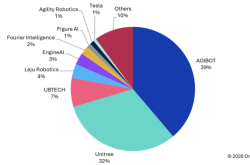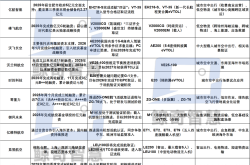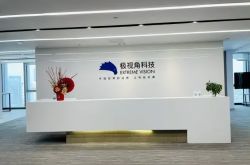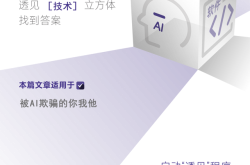Xiaomi Reaches All-Time High, Edging Closer to HK$1 Trillion Market Cap!
![]() 01/06 2025
01/06 2025
![]() 626
626
On January 3, Beijing time, Xiaomi Group (01810.HK) surged 6.62%, closing at HK$36.25, successfully surpassing the HK$35.90 recorded on January 5, 2021, to set a new all-time high. Its market capitalization reached HK$909.71 billion, just 10% shy of HK$1 trillion.
Xiaomi's imminent market capitalization surpassing HK$1 trillion seems inevitable. Here are the three main reasons behind this growth:
1. **Stable Smartphone Business with Premiumization Breakthroughs**: Xiaomi's foundational mobile phone business remains robust, and the company has made significant strides in its premiumization strategy, partly fueled by its foray into electric vehicle manufacturing.
2. **Rapid Growth in Electric Vehicle Business**: The company's electric vehicle division is expanding rapidly, with highly anticipated new models creating a buzzworthy brand presence within the industry.
3. **AI Initiatives and Strategic Hires**: Xiaomi has embarked on building a million-card cluster, signaling major moves in AI. The recruitment of a top AI talent with a multi-million salary package further underscores its commitment to the field.
From an AI entry point perspective, Xiaomi holds a substantial lead with high-frequency touchpoints in both mobile phones and automobiles. This is a dream shared by many tech giants, particularly Apple, which has since shifted focus away from car manufacturing to explore beyond smartphones. Additionally, Xiaomi's ecosystem of various hardware devices also provides excellent entry points. With these advantages, Xiaomi is poised to secure a prominent position in the AI era and the era of the Internet of Things. In terms of its layout spanning people, vehicles, and homes, Xiaomi is fast catching up with Huawei.
Given these accomplishments, Xiaomi's market capitalization nearing HK$1 trillion is well-deserved. Had it been listed in the US, a market capitalization of US$1 trillion would also be a realistic aspiration.
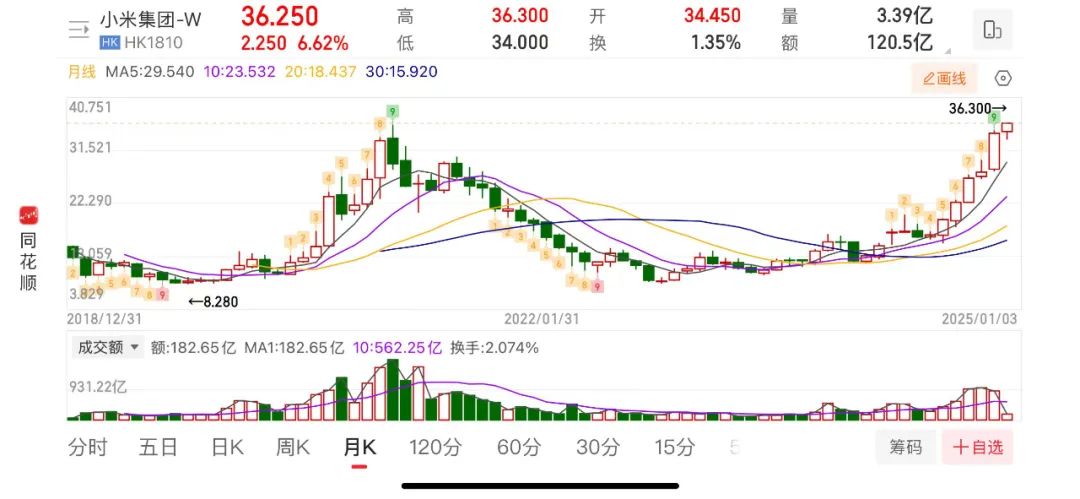
Back in January 2021, when Xiaomi last approached a market cap of HK$900 billion, why didn't it push towards HK$1 trillion then?
It was due to the addition of Xiaomi Group to the US Department of Defense's blacklist of companies "affiliated with the Chinese military" on January 14, Eastern Time. According to Trump's executive order, US investment institutions or individual investors had to fully divest from Xiaomi Group within a year.
Affected by this news, Xiaomi Group's ADR plummeted by 14.19% at one point, and its Hong Kong-listed shares fell by a maximum of 13.48% intraday. This news sent Xiaomi's share price tumbling from its peak to HK$8.31 on October 31, 2022, narrowly avoiding its all-time low of HK$8.28 recorded in September 2019.
Lei Jun publicly stated that the sanctions imposed in January 2021 caused Xiaomi to fear that, like Huawei, its mobile phone business would be severely impacted by US sanctions. This led to discussions at the board of directors about the feasibility of venturing into electric vehicle manufacturing.
On March 30, 2021, Xiaomi Group officially announced its entry into the smart electric vehicle industry on the Hong Kong Stock Exchange. The announcement detailed: 1) Establishing a wholly-owned subsidiary responsible for the smart electric vehicle business; 2) Lei Jun concurrently serving as CEO of this business; 3) Initial investment of RMB 10 billion and a commitment to invest US$10 billion over the next decade.
At the evening press conference, Lei Jun announced that he would personally lead this project, describing it as the most significant entrepreneurial endeavor of his life. He proclaimed, "Fight for Xiaomi Auto!" adding that it would be the culminating battle of his career.
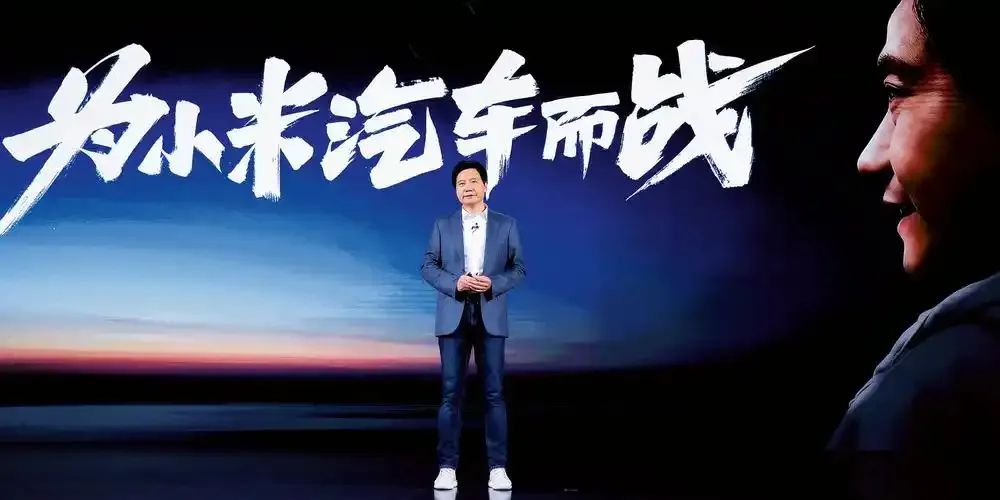
During the event, Lei Jun revealed Xiaomi Group's cash reserves of RMB 108 billion, giving him the confidence to reject investment offers from various capital sources. With the funds for electric vehicle manufacturing sourced entirely from Xiaomi, Lei Jun could steadfastly adhere to his vision.
Following the high-profile announcement of its electric vehicle manufacturing plans, two primary impacts were observed: 1) Xiaomi's electric vehicle business received a surge of job applications; 2) Xiaomi's share price continued to decline. The former indicated that automotive industry talents were optimistic about Xiaomi Auto's prospects, given its substantial cash reserves of RMB 108 billion, unlike some new-energy vehicle startups that had gone bankrupt. The latter reflected that capital markets were skeptical about Xiaomi's foray into electric vehicle manufacturing, citing the industry's high barriers to entry and substantial capital requirements. Crucially, manufacturing and selling cars are two distinct challenges!
**Manufacturing Cars**: In China, with its robust smart car supply chain and a pool of talented professionals, manufacturing cars is not difficult. As long as there is sufficient funding, cars can be produced. Fortunately, Xiaomi has ample funds and strong supply chain management capabilities. When Geely's EV brand struggled, rumors circulated that Xiaomi had manufactured cars with just over RMB 10 billion. However, in a New Year's Eve livestream in 2025, Lei Jun personally debunked this rumor, stating that over RMB 30 billion had been invested in car manufacturing.
**Selling Cars**: In China, the world's largest new energy vehicle market, selling cars poses the greatest challenge. However, this does not seem to deter Lei Jun. Here, it's pertinent to quote Liu Qiangdong's famous words, "Let's not compete with Lei Jun in marketing; we can't win."

Xiaomi and Lei Jun's marketing prowess is unparalleled in the automotive industry.
The launch event for Xiaomi's SU7 in March 2024 garnered widespread attention, establishing Xiaomi Auto as a unique presence in the automotive landscape. For a considerable period after the event, Xiaomi stores witnessed long queues to view the SU7, an astonishing footfall.
Especially on February 28, prior to the launch event, news broke that Apple had abandoned its decade-long electric vehicle project. Many, including myself, anticipated mocking Xiaomi Auto. However, the SU7's performance silenced all critics. Within six months of delivery, monthly sales surpassed 20,000 units, reaching 25,000 in December. Rumors also suggest that Xiaomi's new orders exceed its delivery capacity.
What Xiaomi did not anticipate was that the success of Xiaomi Auto positively impacted sales of other Xiaomi products, including smartphones, at Xiaomi stores. The high footfall attracted by car viewers also enticed customers to browse smartphones, air conditioners, and smart devices. This is evident in Xiaomi's financial reports.
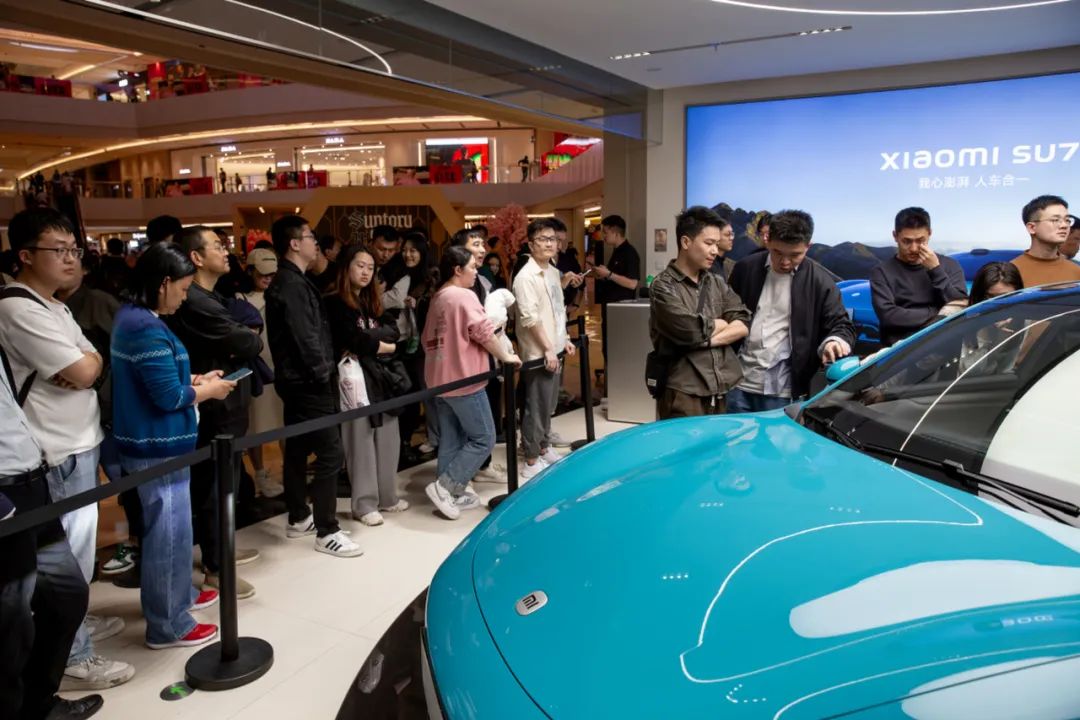
Xiaomi's Q3 2024 financial report marked the company's strongest quarter to date, with future growth expected to be even more robust.
Total revenue reached RMB 92.5 billion, a year-on-year increase of 30.5%. Smartphone revenue amounted to RMB 47.5 billion, a year-on-year increase of 13.9% (with Xiaomi smartphones occupying 22.6% of the 4000-5000 RMB price segment, up 9.7 percentage points year-on-year, and 6.9% of the 5000-6000 RMB price segment, up 2.4 percentage points year-on-year. Xiaomi's premiumization strategy has made significant strides since entering the electric vehicle market). IoT and consumer products revenue totaled RMB 26.1 billion, a year-on-year increase of 26.3%. Air conditioner shipments exceeded 1.7 million units, a year-on-year increase of over 55% (this surge in Xiaomi air conditioner shipments even garnered attention from Gree Electric's Dong Mingzhu); washing machine shipments surpassed 480,000 units, a year-on-year increase of over 50%.
Revenue from innovative businesses, primarily Xiaomi Auto, amounted to RMB 9.7 billion, with an automotive gross margin of 17.1% and a loss of RMB 1.5 billion. However, as delivery volumes increase, Xiaomi Auto is expected to become profitable soon.
In terms of profitability, the adjusted Q3 net profit was RMB 6.3 billion. Regarding cash reserves, as of September 30, 2024, the group's cash reserves stood at RMB 151.6 billion, setting a new record. Many joke that only when Xiaomi manufactures electric vehicles does its cash reserves continue to grow, solidifying Lei Jun's reputation as the "Cash King of Beijing".
With the arrival of Xiaomi's second vehicle, the YU7, in 2025, deliveries of Xiaomi electric vehicles will increase further. During a New Year's Eve livestream, Lei Jun set a sales target of 300,000 Xiaomi electric vehicles for 2025. Given the current trend, this sales target seems conservative, and many believe that Xiaomi Auto has secured a prominent position among the giants in the smart electric vehicle industry.
With the advent of the AI wave, coupled with AI-powered smartphones, computers, various hardware devices, and electric vehicles, Xiaomi's valuation nearing HK$1 trillion is well-deserved. For an even higher market capitalization, it will ultimately depend on market performance.

